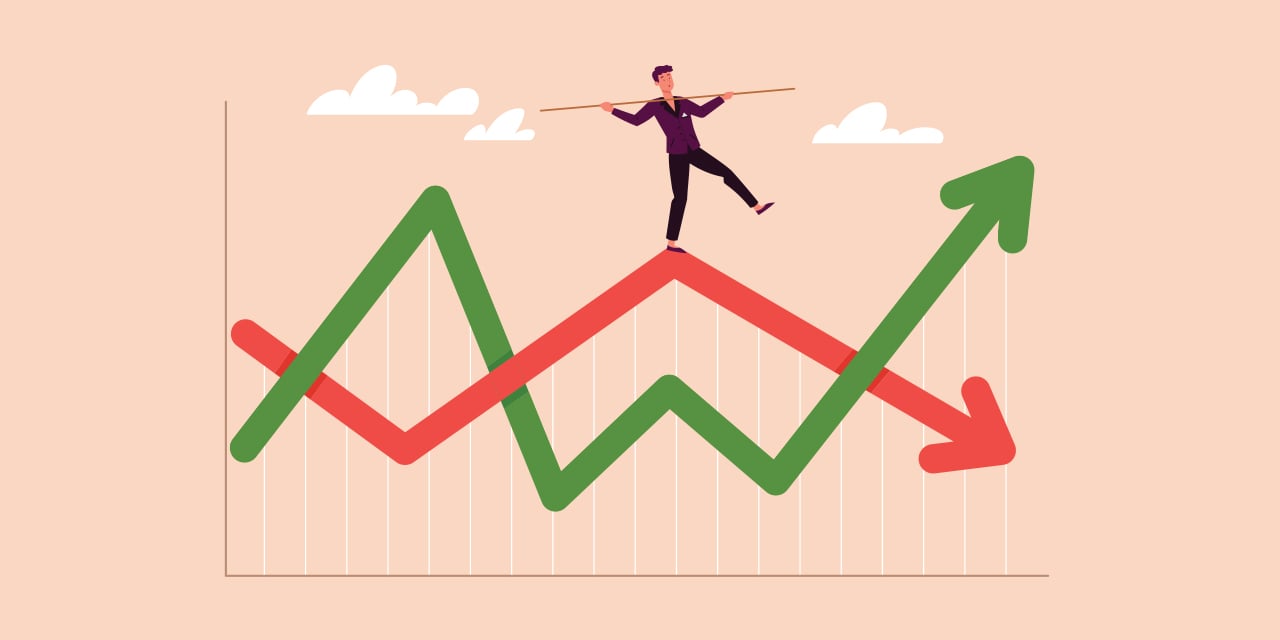
Wealth Management Mailbag: Spring 2023
With the Federal Reserve raising interest rates and explicitly trying to cool the economy, there is no shortage of questions around a possible recession – will one occur? how long would it last? and how bad could it get? We spoke with Market Strategist Mike Antonelli and Investment Strategy Analyst Ross Mayfield about what investors should take away from the current national conversation on recession.
Is a recession in store for 2023?
Mike: First, I think it’s important to put “recession” into perspective. Recessions happen, on average, once every decade. They are part of the normal business cycle, and without them, our economy would become extremely fragile and prone to collapse as risk-taking soars out of control. In essence, they are required. Will we have a recession soon? No one can really answer that question with 100% certainty.
Ross: That’s right. The business cycle comprises upswings and downswings in economic activity, and sometimes those downswings fall into recession territory.
Now, it’s easy to understand why newer investors might be apprehensive over the possibility of recession – the last two we’ve experienced happened to be the two biggest drawdowns in GDP in the last 75 years. But not all recessions are calamitous events – many of the earlier ones were much milder. Given the strong labor market and resilient consumer picture we see before us, if we were to experience a recession, there’s reason to think it will be shallow and short-lived.
Recessions happen, on average, once every decade. They are part of the normal business cycle, and without them, our economy would become extremely fragile.
Should I pull my money out of the market to avoid recessionary portfolio losses?
Ross: The problem with timing your investments around a market pullback is that stocks are forward-looking – they tend to peak well before a recession begins and bottom out well before it ends. Case in point: Since World War II, the average return of the S&P 500 one year following the start of a recession is a robust 9%. Much like stock market volatility, slowdowns and recessions are simply a feature of the economy to be managed through.
Since World War II, the average return of the S&P 500 one year following the start of a recession is 9%.
Mike: I’d go so far to say that “Will we have a recession?” isn’t the right question to ask. The question we should be asking is, “Will investors be okay if a recession occurs? Will they still be able to achieve their goals if the global economy slows down?”
Recessions are scary because they are typically associated with declines in asset values. You read in the news that jobs are being lost, businesses are closing and consumers are scared. Then you open your statement, and that gloom is accompanied by lower balances. It’s a double-whammy of mental anguish.
At Baird we take in all the evidence, understand that there are all kinds of potential outcomes and then advise clients if we see economic waves ahead. The financial plans we create are adaptive to all kinds of market conditions. They build in recessions and market declines.
I would think of it this way: We have built you a ship to navigate your financial life. Ships are built to withstand waves, even the ones that crash unexpectedly into the side. It’s the same with your plan: It is meant to provide you with calming reassurance even as life’s storms brew around you.
If you have questions as to how well your portfolio and financial plans can withstand a recession, your Baird Financial Advisor is only a phone call away. And for more insight into managing wealth, be sure to check out our articles on bairdwealth.com and the latest issue of Digest.
This information has been developed by a member of Baird Wealth Solutions Group, a team of wealth management specialists who provide support to Baird Financial Advisor teams. The information offered is provided to you for informational purposes only. Robert W. Baird & Co. Incorporated is not a legal or tax services provider and you are strongly encouraged to seek the advice of the appropriate professional advisors before taking any action. The information reflected on this page are Baird expert opinions today and are subject to change. The information provided here has not taken into consideration the investment goals or needs of any specific investor and investors should not make any investment decisions based solely on this information. Past performance is not a guarantee of future results. All investments have some level of risk, and investors have different time horizons, goals and risk tolerances, so speak to your Baird Financial Advisor before taking action.


